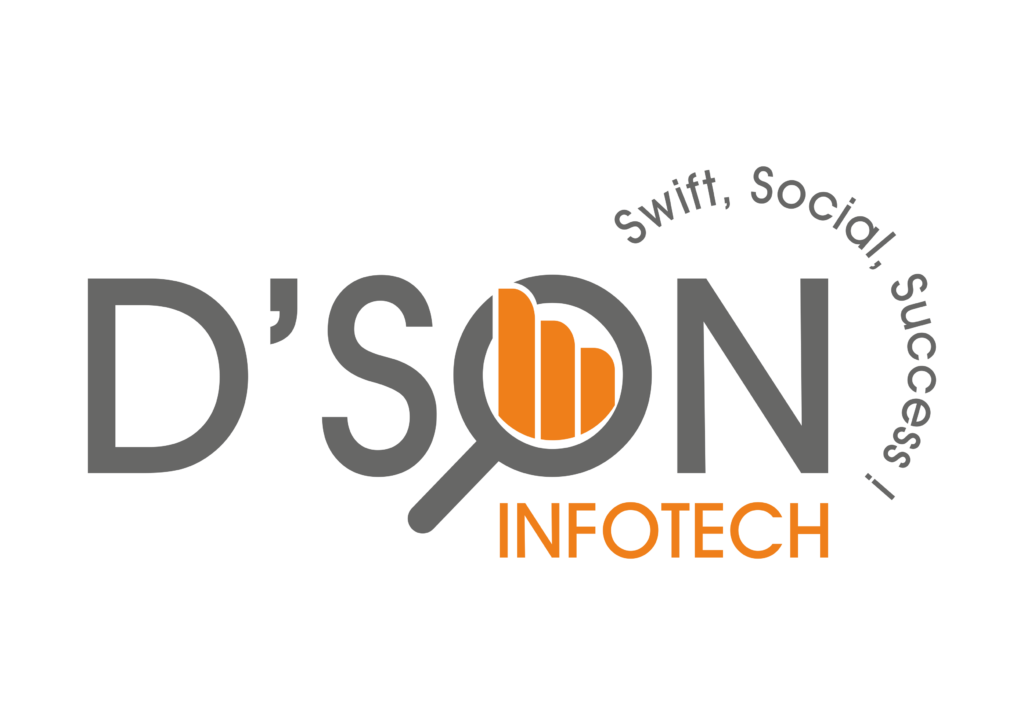- info@dsoninfotech.com
- Mon - Sat 10:00 AM - 6:30 PM
Marketing Automation Services

What is Marketing Automation?
Marketing automation is the use of software and technology to automate repetitive marketing tasks, enabling businesses to streamline processes, increase efficiency, and deliver personalized experiences. It encompasses email campaigns, lead nurturing, social media scheduling, analytics, and more. By automating these tasks, marketers can focus on strategy and creativity, nurture leads through the sales funnel, and provide targeted content to specific audience segments.
Marketing automation enhances customer engagement, improves conversion rates, and contributes to a more personalized and effective marketing approach, ultimately driving better results and ROI for businesses.
Automation Marketing Tools





























Future of Marketing Automation
Artificial Intelligence (AI) Integration
AI will play a significant role in enhancing marketing automation by enabling more advanced personalization, predictive analytics, and intelligent automation of tasks like content creation and optimization.
Hyper-Personalization
As technology advances, marketers will focus on delivering even more personalized and targeted content, leveraging AI and machine learning algorithms to understand individual preferences and behavior.
Customer Journey Orchestration
Future marketing automation platforms may offer more sophisticated customer journey orchestration, seamlessly integrating touchpoints across various channels to create cohesive and consistent experiences.
Cross-Channel Integration
Integration with a wide array of channels, including emerging platforms and technologies, will become increasingly crucial. This includes voice search, chatbots, augmented reality, and virtual reality.
Artificial Intelligence (AI) Integration
AI will play a significant role in enhancing marketing automation by enabling more advanced personalization, predictive analytics, and intelligent automation of tasks like content creation and optimization.
Hyper-Personalization
As technology advances, marketers will focus on delivering even more personalized and targeted content, leveraging AI and machine learning algorithms to understand individual preferences and behavior.
Voice and Conversational Marketing
With the rise of voice-activated devices and smart speakers, marketing automation will need to adapt to facilitate conversational interactions, allowing businesses to engage with users through voice search and virtual assistants.
Data Privacy and Compliance
With growing concerns about data privacy, the future of marketing automation will likely involve a heightened focus on compliance with data protection regulations, ensuring that user data is handled responsibly and ethically.
Automation of Advanced Analytics
Marketing automation platforms may integrate more advanced analytics capabilities, automating the analysis of large datasets to provide actionable insights and predictive analytics for more informed decision-making.
Real-Time Personalization
Advances in technology will enable marketers to deliver real-time, context-aware personalization, ensuring that content and offers are dynamically adjusted based on the user's current context and behavior.
User-Generated Content Integration
Marketing automation systems may evolve to seamlessly incorporate user-generated content, leveraging the authenticity and influence of user contributions in marketing campaigns.
Sustainability and Social Responsibility
As consumer awareness about sustainability and social responsibility grows, marketing automation may incorporate features that allow businesses to communicate and showcase their commitment to these values.
Benefits of Marketing Automation

Improved Efficiency
Automated Workflows:
Marketing automation streamlines repetitive tasks, such as sending emails, social media posting, and lead nurturing, reducing manual workload and enabling marketers to focus on strategy.
Time Savings:
Automated processes save time, allowing marketing teams to allocate resources effectively and accomplish more in less time.
Enhanced Personalization
Targeted Messaging:
Marketing automation allows for personalized and targeted communication with leads and customers based on their behavior, preferences, and demographics.
Dynamic Content:
Tailoring content dynamically ensures that each recipient receives relevant information, improving engagement and user experience.


Lead Nurturing and Conversion
Automated Lead Scoring:
Marketing automation platforms assign scores to leads based on their interactions, helping prioritize and focus efforts on the most qualified prospects.
Drip Campaigns:
Automated drip campaigns nurture leads over time with a series of targeted messages, increasing the likelihood of conversion by delivering the right content at the right time.
Data-Driven Decision-Making
Comprehensive Analytics:
Marketing automation provides detailed analytics and reporting on campaign performance, user behavior, and engagement metrics, enabling data-driven decision-making.
A/B Testing:
Marketers can experiment with different elements of campaigns, analyze results, and optimize strategies based on data insights, improving overall effectiveness.


Cross-Channel Consistency
Multi-Channel Integration:
Marketing automation tools often integrate with various channels, ensuring a consistent and cohesive brand experience across email, social media, and other touchpoints.
Unified Customer Journey:
Automation facilitates a unified customer journey, where interactions and communications seamlessly transition between channels, fostering a cohesive brand narrative.
Why Choose Us?
Expertise
Benefit from our team of marketing professionals with extensive expertise in marketing automation. We stay abreast of industry trends and best practices to deliver cutting-edge solutions.
Customized Strategies
We tailor marketing automation strategies to your unique business goals and industry dynamics. Our approach is customized to maximize the impact on your target audience and specific objectives.
Platform Proficiency
Our team is proficient in using leading marketing automation platforms, ensuring efficient setup, seamless integration, and optimal utilization of features for your campaigns.
Comprehensive Solutions
We offer end-to-end marketing automation solutions, covering email marketing, lead nurturing, social media automation, CRM integration, analytics, and more. This comprehensive approach ensures a unified and effective marketing strategy.
Data-Driven Approach
Leverage our data-driven approach to marketing automation. We analyze key metrics, track user behavior, and use insights to continuously optimize campaigns for better performance and ROI.
Targeted and Personalized Campaigns
Our focus is on creating targeted and personalized campaigns that resonate with your audience. Through segmentation and personalization, we ensure that your messages are relevant and engaging.
Multi-Channel Integration
We seamlessly integrate marketing automation across multiple channels, ensuring a cohesive brand experience. Whether through email, social media, or other touchpoints, our strategies maintain consistency and effectiveness.
Transparent Communication
Experience clear and transparent communication throughout our partnership. We provide regular updates, insights, and reports, keeping you informed about the progress and success of your marketing automation initiatives.
Know What Say Our Clients About Us
Reviews
My website is on top position in Google, its effect reflects in my business; I am entirely satisfied with the services
KUNAL PANCHAL
Neptune Industries
I can see enhancement in my business after connecting with D’son Infotech; my website, social media pages, blogs are well maintained
MAHENDRA PATEL
Rudrra SensorFAQs
What is Marketing Automation?
Marketing automation refers to the use of software and technology to automate repetitive marketing tasks, streamline workflows, and deliver personalized content to leads and customers.
How can Marketing Automation Benefit My Business?
Marketing automation can benefit your business by saving time, improving efficiency, nurturing leads through the sales funnel, delivering personalized experiences, and providing insights for data-driven decision-making.
Which Marketing Automation Platform is Right for My Business?
The right platform depends on your business needs, size, and goals. We can assess your requirements and recommend a platform such as HubSpot, Marketo, or others that align with your objectives.
How Does Marketing Automation Integrate with CRM Systems?
Marketing automation and Customer Relationship Management (CRM) systems often integrate seamlessly. This integration ensures that marketing and sales teams have a unified view of customer interactions, improving collaboration.
How Does Marketing Automation Personalize Customer Experiences?
Marketing automation personalizes experiences by utilizing customer data to deliver targeted and relevant content. This includes personalized emails, dynamic website content, and tailored communications based on user behavior.
How Long Does it Take to See Results with Marketing Automation?
The timeline for results varies, but many businesses start seeing improvements in efficiency and engagement within a few weeks. The full impact may take a few months as campaigns are optimized and lead nurturing takes effect.
What Types of Campaigns Can Be Automated?
Marketing automation can automate various campaigns, including email marketing, lead nurturing, social media scheduling, and personalized content delivery. The types of campaigns depend on your business goals and target audience.
What is Lead Scoring, and Why is it Important?
Lead scoring is the process of assigning scores to leads based on their interactions with your marketing content. It helps prioritize leads, allowing sales teams to focus on those most likely to convert.
Is Marketing Automation Suitable for Small Businesses?
Yes, marketing automation can benefit small businesses by improving efficiency, automating repetitive tasks, and providing tools for targeted marketing. We can tailor solutions that fit the specific needs of small businesses.
How Can Marketing Automation Help with Customer Retention?
Marketing automation can help with customer retention by delivering personalized loyalty campaigns, re-engaging inactive customers, and providing relevant content to keep customers engaged over time.
